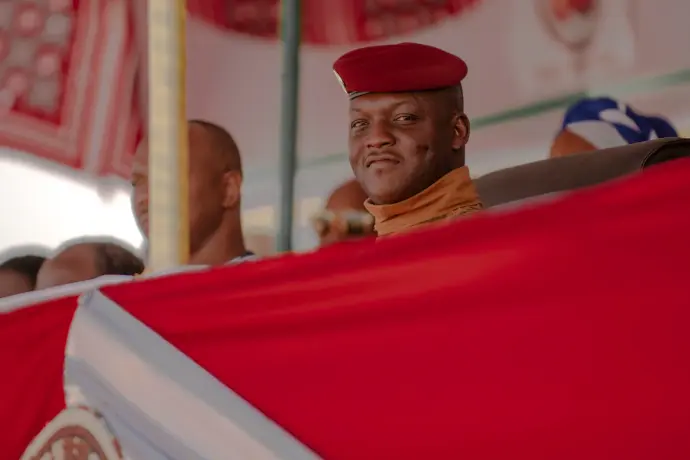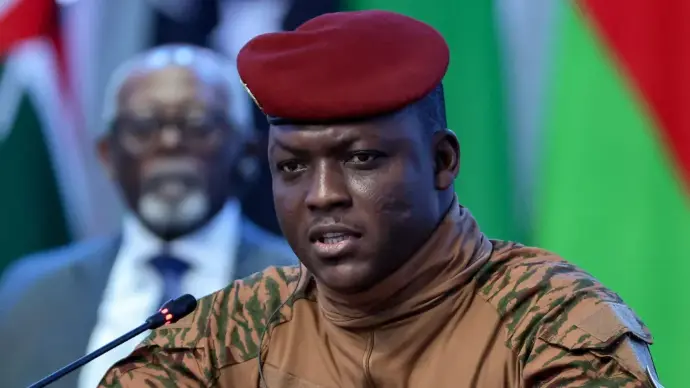OUAGADOUGOU, Burkina Faso — Since seizing power in a 2022 coup, Captain Ibrahim Traoré has radically reshaped Burkina Faso’s foreign policy, breaking from traditional Western partners and pivoting toward regional and global alliances.
Breaking with France, partnering with Russia
In December 2023, Burkina Faso withdrew from the G5 Sahel joint military force and expelled French troops, ending decades of French influence in the region. At the same time, relations with Russia have strengthened, with Moscow reopening its embassy in Ouagadougou and signing agreements on military cooperation and infrastructure projects, including mining ventures and plans for a nuclear power plant.
“We will mine our gold ourselves, not for France, but for our people!” — Captain Ibrahim Traoré (Le Monde)
 Traoré, Burkina Faso's president and seen by supporters as an heir to Sankara, at the launch of a tomato factory in Yako on Dec. 16, 2024.
Traoré, Burkina Faso's president and seen by supporters as an heir to Sankara, at the launch of a tomato factory in Yako on Dec. 16, 2024.
The Alliance of Sahel States (AES)
In response to perceived Western interference, Burkina Faso, Mali, and Niger established the Alliance of Sahel States (AES). The bloc aims to strengthen regional stability through a joint military force of 5,000 troops, a common central bank, and a new currency to replace the CFA franc.
Pan-africanism at home

Traoré has invoked the legacy of revolutionary leader Thomas Sankara, promoting self-reliance through local food production, infrastructure projects, and electric vehicle initiatives.
“From Samori Touré to Thomas Sankara, our ancestors chose resistance. Now, we must choose: either we fight for sovereignty, or we remain slaves to neo-colonialism.” — Captain Ibrahim Traoré (Just International)
Human rights and international criticism
Despite these moves, Burkina Faso faces scrutiny. In August 2025, the government declared UN regional coordinator Carol Flore-Smereczniak persona non grata after a report alleged child rights violations. Authorities dismissed the report as “unfounded,” but concerns remain over press freedom and civil liberties (Reuters).
Russia has also helped amplify Traoré’s image through media campaigns, including AI-generated content, portraying him as a Pan-African hero. While these efforts resonate with young people across Francophone Africa, analysts warn of foreign influence shaping domestic politics.
A model for Africa’s future?
Burkina Faso’s pivot reflects a wider trend of African nations seeking autonomy and redefining international partnerships. While distancing from Western powers and cultivating new alliances provides opportunities, it also raises questions about governance and human rights.
As the country navigates this new diplomatic path, its policies may shape the future of Pan-African cooperation and influence the continent’s geopolitical landscape.